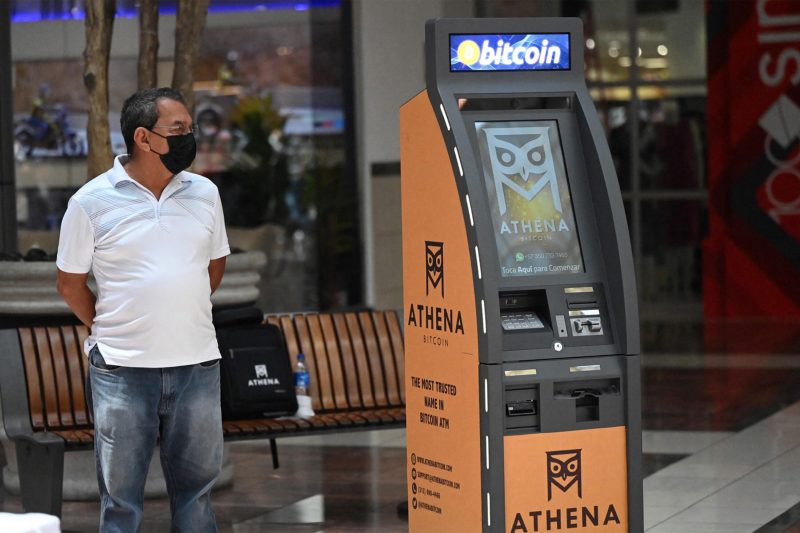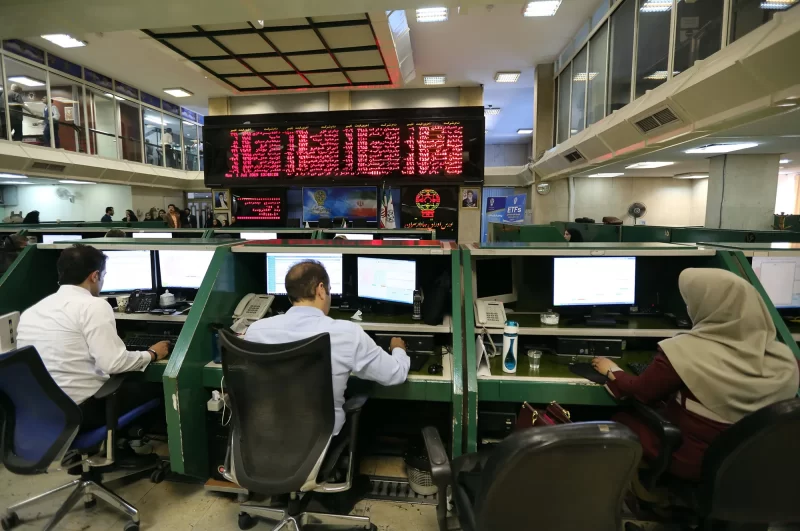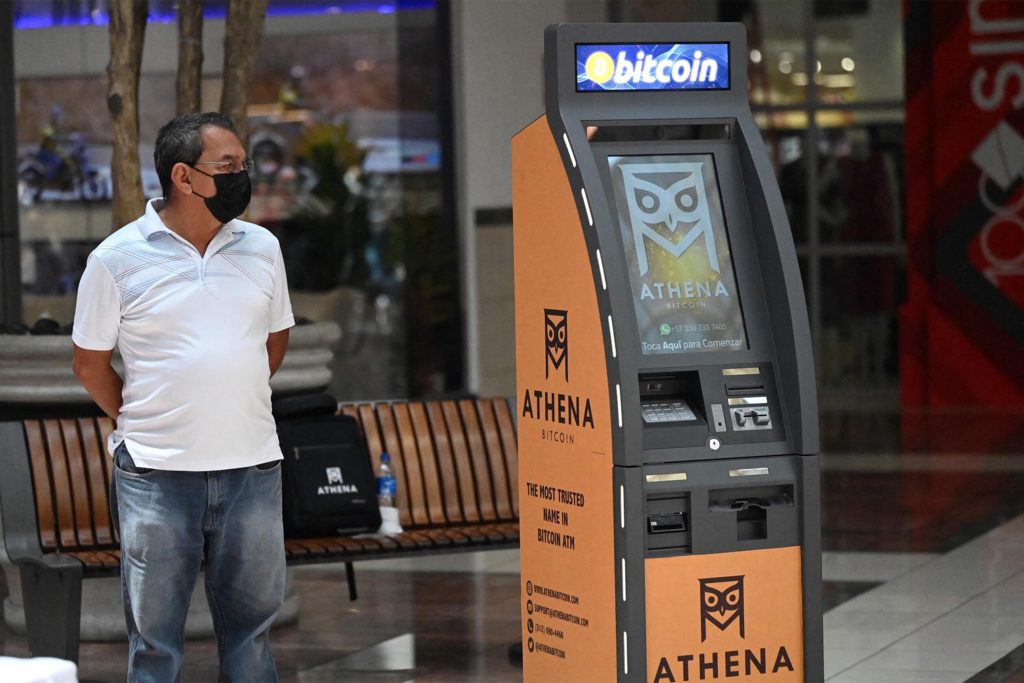
Also Read: Is Cryptocurrency a Good Investment?
Contents
- What is KYC?
- Understanding Know Your Customer (KYC) Processes
- What are the Benefits of KYC in Crypto Exchanges?
- Crypto Exchange KYC Risks
- Can You Buy Crypto Without KYC?
- Why is KYC Compliance Now Mandatory for Most Crypto Exchanges?
- Solving for Crypto KYC Verification
- What is the Difference Between KYC & AML?
- How Does KYC Affect Decentralization and Anonymity?
- Conclusion
- FAQs
What is KYC?
KYC is an acronym for “Know Your Customer” or “Know your customer”. KYC is an act of validating a customer's identity. Financial institutions and monetary service organizations, such as banks, stockbrokers, and now crypto exchanges, are the most prevalent users.
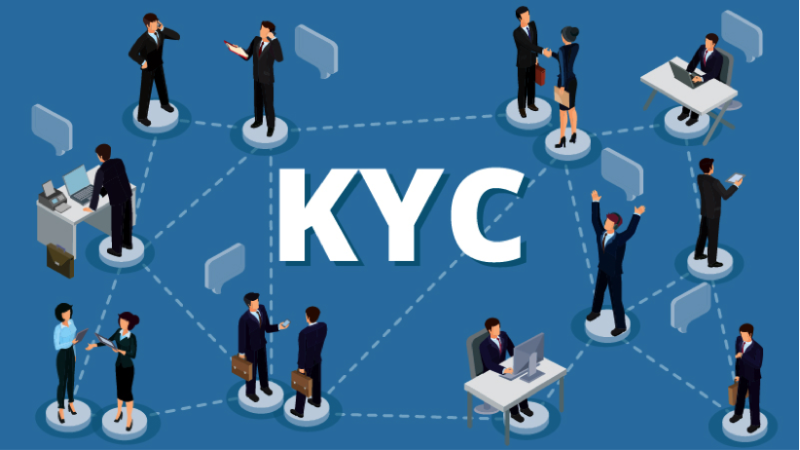
You could be able to open an exchange profile before completing the KYC process, however, your account will be restricted till your identity verification is complete.
The most likely limitation is that crypto exchanges will not allow you to make deposits or buy crypto. It might also impose a limit on the quantity of money you can pay.
KYC authentication is used to ensure that a client is who they say they are and to avoid illicit actions including laundering money, terrorist financing, and tax avoidance.
If a cryptocurrency exchange does not take KYC precautions, it may be held accountable for such illicit acts.
Understanding Know Your Customer (KYC) Processes
KYC regulations are designed to combat id impersonation, fraud and money laundering by requiring companies to acquire and confirm vital information about customer data in order to fully understand who they really are.
When consumers create new accounts, request for credit, make an investment, and take other essential activities, financial institutions frequently need them to go through KYC processes.
Demands for identifying data, such as driver's license, Social Security numbers, and other financial statements, are frequently included in these procedures, as are authentication and preservation of this data to guarantee kyc compliance in the case of an audit.
Cryptocurrency exchanges are now under the same regulations as regular financial institutions, some have argued that gathering this data weakens the anonymity of cryptocurrencies.
Other cryptocurrency exchanges demand consumers to input identity verification data when registering accounts, but they instantly grant trading access without validating it, rights are only cancelled if the KYC verification shows anything concerning. Others have chosen to break out of the US KYC regulations by blocking access to US users.
Despite efforts to short-circuit or evade KYC regulatory requirements, the increasing crypto industry and wider appeal almost assure that KYC standards will not only extend for exchanges but also stimulate more regulatory kyc compliance.
What are the Benefits of KYC in Crypto Exchanges?
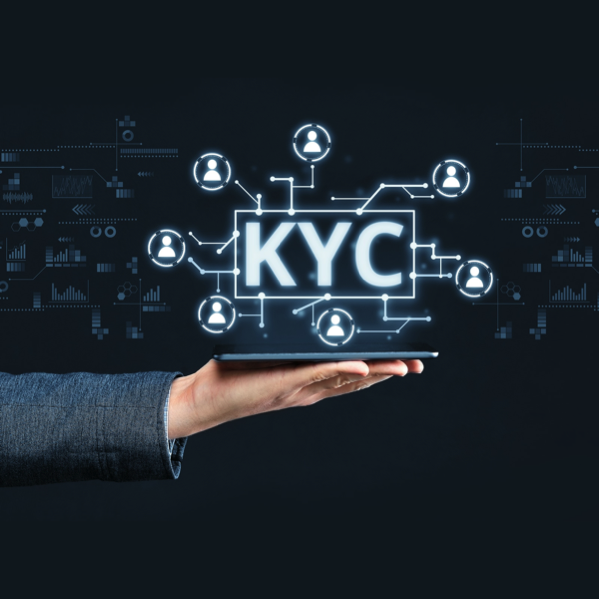
Given the operational adjustments and hurdles that KYC laws bring, cryptocurrency exchanges stand to gain significantly from compliance with regulations, which would include:
Transparency and trust among customers are improved.
Identity verification may increase transparency while also increasing consumer trust. When users feel that your crypto exchange is adopting precautionary and preventative steps to secure their accounts, they're more likely to stick with you.
Money laundering and other frauds are less possible
According to Forbes, over 80,000 cases of bitcoin fraud were reported in the United States last year, a 24,000 per cent increase from 2016. Identity verification that is thorough may dramatically minimize fraudulent behaviour while also improving market reputation.
Low legal risk
Implementing effective KYC rules may put businesses ahead of the game, allowing them to focus on boosting conversion rates, simplifying transactions, and maintaining compliance with growing international norms rather than trying to catch up. Businesses can reduce their risk of legal lawsuits or regulatory penalties by proving KYC compliance.
Improved stability of the crypto market
The crypto market is highly unstable, due partly to anonymous transactions that may be dubious or unlawful. Increasing identity verification as part of KYC procedures can assist maintain the market as a whole while also increasing its market value.
Crypto Exchange KYC Risks
KYC conformity in the bitcoin field is made more difficult by a shifting regulatory framework and comparatively new criminal methods.
As a result, when building and executing their KYC requirements, crypto exchanges should be mindful of the following weaknesses and risks.
Anonymous transactions
Money laundering participants might use crypto exchanges activities to remain anonymous online. As a result, crypto exchanges should use digital restrictions to guide their identity verification process, including gathering biometric client information such as facial, speech, and fingerprint readings.
Transaction Speed
Crypto funds may be transferred within accounts instantaneously, frequently exceeding AML/CFT safeguards. Before money are sent to user wallets, exchanges should verify that their own AML/CFT inspections and safety monitoring processes can be performed.
Structured transactions
Launderers may try to avoid notifying thresholds by dividing their transactions into tiny sums and distributing them across many accounts.
To detect and avoid structuring schemes, crypto exchanges should guarantee that their rules prohibit the opening of numerous accounts and share data with other financial services companies.
Money muling
Money launderers may try to take advantage of the flaws in crypto transactions by forcing or bribing third persons, termed as money mules, to interact with crypto exchange systems in their place.
Money mules should be identified by completing necessary checks and identifying consumers whose accounts do not correspond with their assets or expected financial activity.
Negative customer experiences
Aside from regulatory problems, crypto exchanges with insufficient or inappropriate complete KYC processes risk negatively impacting their clients' interaction with their services.
KYC allows crypto exchanges to construct complete risk accounts using a risk-based strategy, and then alter their AML/CFT rules to better fit people.
With this in mind, efficient KYC is a method to improve customer experiences for lower-risk consumers by assuring service speed and efficiency in areas where onerous AML/CFT inspection is not necessary.
Can You Buy Crypto Without KYC?
Anyone can buy crypto without KYC process, but it is much more difficult and possibly risky than using a KYC-compliant exchange.
Decentralized exchanges and Bitcoin ATMs are the most prevalent ways to acquire cryptocurrency without having to validate your identity.
A decentralized exchange is one that is not governed by a central entity. Peer-to-peer markets and autonomous market participants are the two forms of decentralized exchanges.
Peer-to-peer (p2p) marketplaces allow sellers and buyers to publish bitcoin deals on a common platform. It's like eBay, but for cryptocurrencies. There are a few well-known peer-to-peer markets to trade crypto. These crypto exchanges include Bisq, LocalBitcoins.com and so on.
Despite the fact that such sites have security in place to prevent fraud, there is still a chance of being defrauded and losing money. Peer-to-peer markets are riskier than centralized cryptocurrency exchanges.
AMMs (Automated Market Makers) allow you to trade cryptocurrency pairings, and they use smart contracts to establish their trading pricing. Liquidity pools, which are pools of consumer crypto money, are used for trading. AMMs that are popular include uniswap, pancakeswap, sushiswap, 1inch and many more.
While AMMs do not need an identity verification process, you must have a cryptocurrency wallet with funds in order to trade. These platforms do not allow you to purchase cryptocurrency with cash.
Many consumers choose to start by purchasing cryptocurrency with cash on a centralized exchange. After that, users move it to a crypto wallet and link it to an AMM to have access to a larger number of cryptocurrencies.
Bitcoin ATMs may be found around the world. These aren't usually confined to Bitcoin, despite the name. Other sorts of cryptocurrencies are available from some. These ATMs allow you to buy cryptocurrency with cash, despite the exorbitant costs.
Also Read: Crypto Market vs Stock Market
Why is KYC Compliance Now Mandatory for Most Crypto Exchanges?
Most crypto exchanges are classified as MSBs (money service businesses) within federal legislation, KYC is now required.
While these companies have always dealt with money in some manner, overall market mistrust resulted in a lack of regulations around crypto exchanges, especially as trading became increasingly complex and difficult for the general public.
However, as the market has become more diverse and bigger amounts of digital currency have been transacted, crypto exchanges have become more popular, causing government authorities to place increasingly stringent controls on these businesses.
Solving for Crypto KYC Verification
As the volume and velocity of digital currencies rise, KYC for cryptocurrencies is only here to stay, and legal requirements are rising throughout the world.
As a result, cryptocurrency exchanges can no longer afford to put off implementing and implementing the finest KYC systems.
IDV systems that offer extensive worldwide coverage, a simplified customer experience, mechanization, and several verification methods for different risk accounts and use cases are optimal for crypto enterprises when it comes to KYC.
Character is the only identification platform that provides organizations with the building pieces they need to create their perfect KYC program, as well as automation and coordination capabilities to make the process go smoothly from start to finish.
What is the Difference Between KYC & AML?
The rules for knowing your customer are part of a larger encompassing phrase known as anti-money laundering (AML). AML refers to a wide variety of regulatory processes aimed at preventing money laundering. Software screening, record keeping, and sanctioning are some of the other AML processes.
KYC is a type of anti-money laundering (AML) procedure that entails identification verification and increased due diligence.
Regulators' KYC, AML, and other protocols make it increasingly challenging for sophisticated criminals and terrorists to conceal their unlawful operations. They will be unable to pass off monies obtained illegally as genuine.
While this is a positive feature, some members of the bitcoin community disagree over whether or not exchanges ought to make KYC compliance a requirement. According to the reasoning, KYC and AML laws are incompatible with the notion of decentralization.
How Does KYC Affect Decentralization and Anonymity?
Decentralization is one of the most enticing aspects of cryptocurrency and blockchain technology. This signifies that the system is not under the control of a single authority.
Activities on these blockchains are kept on several computers throughout the world via peer-to-peer nodes, rather than a single database. By granting power to a centralized body, KYC requirements make cryptocurrency exchanges similar to existing financial institutions.
Losing anonymity is a hefty price to be paid by users concerned with the concept of privacy through decentralized blockchain, particularly when they provide their KYC credentials to centralized cryptocurrency exchanges.
While bitcoin exchanges claim to protect their customers' personal information, many people who desire to remain anonymous are wary about taking that risk. Many exchanges currently lack adequate KYC mechanisms to safeguard consumer information, thus these anxieties are not unwarranted.
There have been various incidents of hackers gaining access to cryptocurrency customers' KYC data by exploiting security flaws in exchange software. Binance is one of the only exchanges with a specific and secured system for collecting and managing KYC data.
Conclusion
Numerous cryptocurrency and financial industry firms wishing to comply with AML rules and standards must go through the KYC procedure. These financial restrictions contribute to a secure and criminal free corporate environment.
Although you may not have complete anonymity when transacting with cryptocurrencies. Binance and other large exchanges strive to maintain KYC compliance in order to safeguard their consumers.
Rest assured that all user data and private information, including KYC data, is secured in both storage and transmission.
FAQs
What is KYC in crypto?
KYC stands for “know your client.” It refers to an institution's need to do specific identification verifications on its consumers before allowing them access to their goods or services. These tactics are now being used by a number of regulatory authorities to combat currency laundering.
Is KYC required for crypto?
Although not required in all crypto-based exchange marketplaces, the KYC procedure should be done to avoid money laundering. Most major crypto exchanges already have KYC processes in place, nevertheless, certain exchanges and banking information are still lagging.
How can I buy crypto without KYC?
Numerous peer-to-peer cryptocurrency trade sites are exempt from KYC regulations. LocalCryptos Shapeshifting BitQuick, Local BitCoins.com, DameCoin, and Paxful are examples of this.
Why is KYC important for crypto exchanges?
KYC verifies your id and information, which helps to improve crypto security. The easiest technique of conducting transactions necessitates the implementation of KYC.



